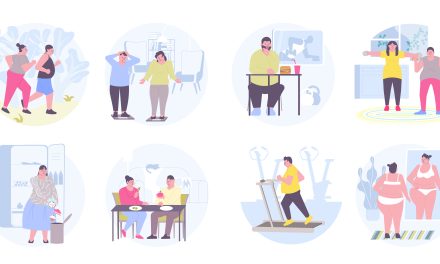Done right, meditation can work wonders for your mental health
It’s as simple as pausing and taking deep breaths. Letting your shoulders relax and closing your eyes for just a few minutes. If you’re constantly stressed and anxious, why haven’t you tried meditation yet?
Quick Read:
- It does take patience to meditate, so keep at it. It may take a few tries before it clicks.
- You can meditate in whichever manner you feel most comfortable.
Wouldn’t it be wonderful to awake each day feeling relaxed, calm and peaceful? Your boss throws a load of assignments on your desk and you smile and nod, feeling perfectly unbothered. Meditation could give you this serene state of being.
How can meditation help me?
We know, meditation sometimes gets a bad reputation. “I can’t sit still, it doesn’t work for me!”. Maybe you’ve tried it before and it just seems too silly to work. Think of it this way: when you are forced to sit still and be quiet, all you have for company are your thoughts. And this is a good thing.
Close your eyes and focus on one thought or idea. That’s it! That’s what meditation is about – simple focus. Mindful meditation takes it one step further: being completely present and aware, each moment by moment. This awareness includes your thoughts and feelings, the way your body feels and even the sensations from your environment.
Mindfulness when meditating means “paying attention in a particular way, on purpose, in the present moment.” It means accepting all your thoughts and feelings – without judging them. There is no “wrong” or “right” feeling.
If you think deeply, you will understand better. – Igbo Proverb
Be still to
manage stress
We all know about stress. When we’re anxious, sad, depressed or frustrated, stress hormones come out to play, creating much turmoil in the mind and body.
Yet, when you slip into a state of mindful meditation, the stress hormones start to decrease. Your brain calms down and your blood pressure drops. This is great for reducing anxiety and nervousness because it helps you think through your worries more clearly, making them slowly melt away.
Now, imagine that feeling each day. You can do it by retraining your brain. If you practise it regularly, meditation can be a powerful source of strength each day. A study found that just 30 minutes of meditation a day for eight weeks can increase the concentration of grey matter in areas of the brain that are responsible for memory, regulating stress and managing empathy. People in the study showed great results of better emotional regulation and empathy after only two months of practice.

Meditation can help with pain and sickness
Even better, meditation can help people who are suffering from chronic pain. Another study published in JAMA Medical Journal found that people with chronic lower back pain responded positively to mindfulness treatment which resulted in a significant improvement in the pain.
Depression is another condition that mindfulness could tackle in a meaningful way. “People at risk for depression are dealing with a lot of negative thoughts, feelings and beliefs about themselves and this can easily slide into a depressive relapse.” says a study in The Lancet, “Mindfulness cognitive therapy helps them to recognise that’s happening, and engage with it in a different way and respond to it with equanimity and compassion.”
The good news is that you’re probably already familiar with meditation, in some ways.
Take Ubuntu, a concept in southern Africa that teaches the importance of seeing our shared humanity. It encourages us to live in harmony with others, which fits perfectly with mindfulness – being present and accepting all experiences without judgement. Ubuntu reminds us that we are all connected, much like mindfulness focuses on being aware of how we relate to ourselves and others, without overthinking or criticising our emotions.
Quick ways to get started with meditation
- Breathe in, breathe out. Breathing is simple right? Not really. To get the full benefit of breathing properly, inhale deeply through your nose and exhale through your mouth. Practise this sort of breathing whenever you feel panicked or stressed.
- Touch and feel. Are you aware of your environment? Really aware of how it looks, sounds, feels? Close your eyes in your meditative spot and really become aware of your surroundings. This attentiveness will help to ground you and centre your thoughts.
- Let the thoughts walk on by. A negative thought comes in marching in. So what? This is the main point of mindfulness. You are NOT your thoughts. Imagine your thoughts are little people. Let them enter and let them exit. Hi thoughts, bye thoughts!
Images: Pexels




















